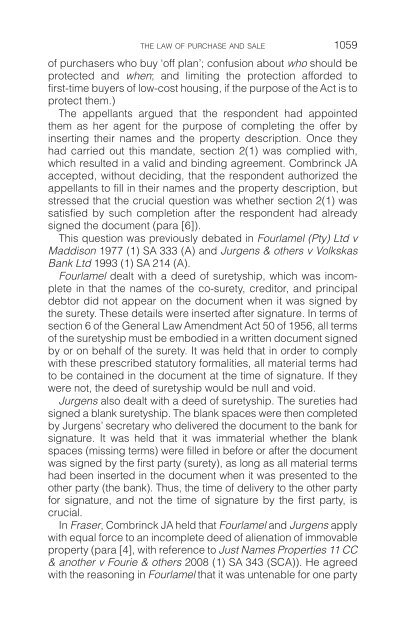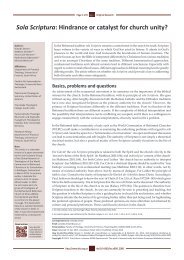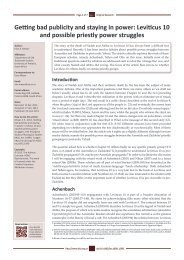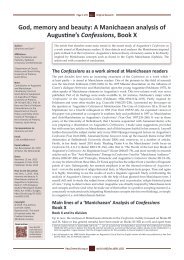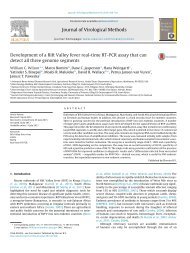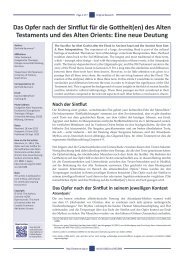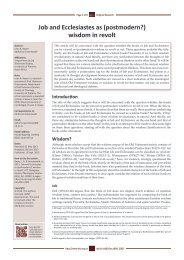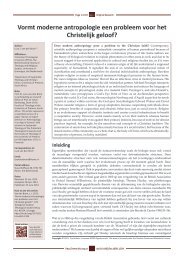View/Open - Repository.up.ac.za - University of Pretoria
View/Open - Repository.up.ac.za - University of Pretoria
View/Open - Repository.up.ac.za - University of Pretoria
Create successful ePaper yourself
Turn your PDF publications into a flip-book with our unique Google optimized e-Paper software.
THE LAW OF PURCHASE AND SALE<br />
1059<br />
<strong>of</strong> purchasers who buy ‘<strong>of</strong>f plan’; confusion about who should be<br />
protected and when; and limiting the protection afforded to<br />
first-time buyers <strong>of</strong> low-cost housing, if the purpose <strong>of</strong> the Act is to<br />
protect them.)<br />
The appellants argued that the respondent had appointed<br />
them as her agent for the purpose <strong>of</strong> completing the <strong>of</strong>fer by<br />
inserting their names and the property description. Once they<br />
had carried out this mandate, section 2(1) was complied with,<br />
which resulted in a valid and binding agreement. Combrinck JA<br />
<strong>ac</strong>cepted, without deciding, that the respondent authorized the<br />
appellants to fill in their names and the property description, but<br />
stressed that the crucial question was whether section 2(1) was<br />
satisfied by such completion after the respondent had already<br />
signed the document (para [6]).<br />
This question was previously debated in Fourlamel (Pty) Ltd v<br />
Maddison 1977 (1) SA 333 (A) and Jurgens & others v Volkskas<br />
Bank Ltd 1993 (1) SA 214 (A).<br />
Fourlamel dealt with a deed <strong>of</strong> suretyship, which was incomplete<br />
in that the names <strong>of</strong> the co-surety, creditor, and principal<br />
debtor did not appear on the document when it was signed by<br />
the surety. These details were inserted after signature. In terms <strong>of</strong><br />
section 6 <strong>of</strong> the General Law Amendment Act 50 <strong>of</strong> 1956, all terms<br />
<strong>of</strong> the suretyship must be embodied in a written document signed<br />
by or on behalf <strong>of</strong> the surety. It was held that in order to comply<br />
with these prescribed statutory formalities, all material terms had<br />
to be contained in the document at the time <strong>of</strong> signature. If they<br />
were not, the deed <strong>of</strong> suretyship would be null and void.<br />
Jurgens also dealt with a deed <strong>of</strong> suretyship. The sureties had<br />
signed a blank suretyship. The blank sp<strong>ac</strong>es were then completed<br />
by Jurgens’ secretary who delivered the document to the bank for<br />
signature. It was held that it was immaterial whether the blank<br />
sp<strong>ac</strong>es (missing terms) were filled in before or after the document<br />
was signed by the first party (surety), as long as all material terms<br />
had been inserted in the document when it was presented to the<br />
other party (the bank). Thus, the time <strong>of</strong> delivery to the other party<br />
for signature, and not the time <strong>of</strong> signature by the first party, is<br />
crucial.<br />
In Fraser, Combrinck JA held that Fourlamel and Jurgens apply<br />
with equal force to an incomplete deed <strong>of</strong> alienation <strong>of</strong> immovable<br />
property (para [4], with reference to Just Names Properties 11 CC<br />
& another v Fourie & others 2008 (1) SA 343 (SCA)). He agreed<br />
with the reasoning in Fourlamel that it was untenable for one party


